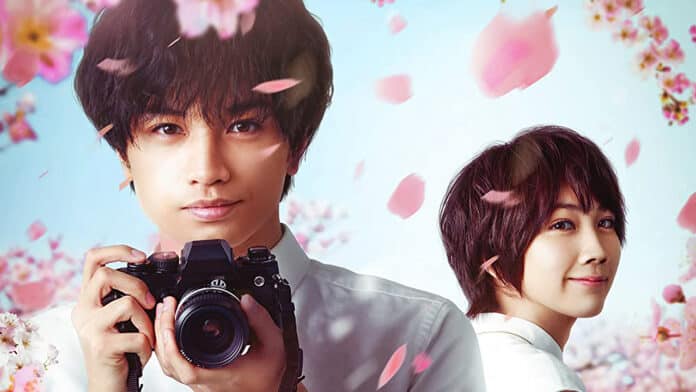‘Love Like the Falling Petals’ is a Japanese romantic drama about two individuals who fall in love, but are at a race against time. The film is now available on Netflix.
Story
Love Like the Falling Petals follows an aspiring photographer, Haruto, who meets Misaki for the first time when he goes to get his hair cut. She is the hairdresser cutting his hair and he is her very first client. Haruto instantly falls in love with Misaki and her bright and bubbly personality.
On one haircut appointment, Haruto moves his head while talking and Misaki unfortunately cuts his earlobe. As compensation, she agrees to go out on a date with him, to view and photograph some sakuras, or cherry blossoms.
The two go on the date, where Haruto reveals that he is simply an aspiring photographer, when he had previously told her that he was already employed. Furious, Misaki lectures him to work hard to pursue his passion, which he considers.
He works hard and gets employed at a photo studio, run by a prominent photographer. He then asks her out again. Misaki agrees and they begin dating, to both their delights.
However, fate is not on their side as Misaki soon gets diagnosed with a deadly disorder that ages her rapidly. Following heartbreak and lies to protect Haruto, she slowly looses her youth and light.
Misaki tries to lie to Haruto for months, but eventually gets overwhelmed by guilt. She reveals all but her appearance, to maintain her precious relationship with him.
He continues to work hard, amongst his peers and idol figure. The two try to navigate her illness and their love.
Performances
The film has anime notes to it, which leads the script to lean towards demanding exaggerated expressions and dialogues from the actors.
Kento Nakajima performs convincingly as the lovestruck Haruto. He passionately shows the character’s drive and motivation that continues throughout the movie.
Honoka Matsumoto offers a good performance for a classically written female lead. Her acting as the ageing and wrinkled Misaki is convincing and she manages to gather sympathy for her character.
Kento Nagayama plays a good depiction of Misaki’s concerned older brother, who bends over backwards to provide for his family and save his only sister. He gains pity and compassion for his relatable and hardworking character by the audience.
Positives
The film is not slow-burn, which one would usually expect from a romance drama. It is quickly paced, much similar to the protagonist’s life itself.
There is minimal and appropriate use of CGI, only to add emphasis to the anime-like vibe of the movie. There are vibrant and brightly lit shots to indicate the good and dimly lit, sombre shots to depict the bad in the film. These clearly set the tone and mood of the film.
The film also brings light to fraudulent medical businesses, who exploit the vulnerable and ill.
Negatives
Haruto is shown to be dishevelled at the couple’s first meeting. No context is provided for his appearance as he is previously shown to be employed constantly and work appropriate.
The film follows a repeatedly used trope of “manic-pixie dream girl”, who only exists to make others’ lives better and is then usually killed off.
Misaki’s illness follows a peculiar timeline, which confuses viewers. It is unclear due to the lack of specification of how many months she had to live.
Verdict
The movie is a light watch, which tells the story of love, heartbreak and resolution. It is not a cinematic masterpiece in any form, containing a predictable script, but is a casual film to help pass the time.
Rating: 3/5
Also Read: Love Like the Falling Petals summary and ending explained

